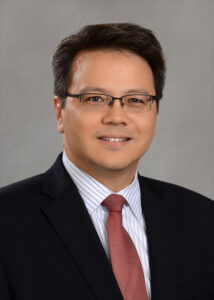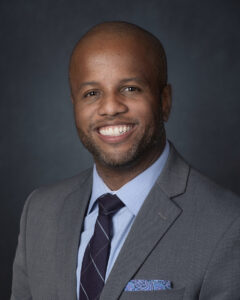
Tempe Mayor Corey Woods hinted last month during an interview with the Wrangler News that change may be coming to the Tempe Police Department.
That hit hard on Tuesday when Police Chief Sylvia Moir, who has led the department since March, 2016, “agreed to leave her role effective Oct. 25,” according to a news release from the city.
Woods told the Wrangler on Tuesday that he did not ask for Moir’s resignation. Those kinds of personnel matters are handled by the city manager, Andrew Ching.
“What our news release says, that Chief Moir ‘has agreed to leave her role effective Oct. 25,’ indicates that there may have been some conversations back and forth between them and they reached an agreement,” Woods said. “That’s a question that would be better put to Andrew Ching.”
Ching said that he did not specifically ask for Moir’s resignation, but that after the series of meetings over several weeks, “it just culminated in a sort of understanding that this was a transition that was appropriate. It never culminated in me specifically saying, ‘You must resign.’ It was more let’s talk about what is in the best long-term interests of the community first, the department and her individually.”
Ching accepted the resignation at a time when Tempe is making reforms within its Police Department in the wake of a national outcry for police reform precipitated by the death of George Floyd in May at the hands of the Minneapolis police. Ching intends to appoint an interim Tempe Police Chief in the coming days.
Moir could not immediately be reached for comment.
In her farewell email to staff, she wrote, “In conversations with City Manager Andrew Ching, he has been clear about who should finish the work and who should have a seat at the table for the reforms desired. These conversations have culminated in making the difficult decision to resign. … The ongoing transformation that law enforcement is engaged in is real, justified, and achievable with the continued support and dialogue with our broader community, city staff, and the committed members of our police department. As we transition toward the City vision of advancing the reforms of The Right to Breathe and the Mayor’s Public Safety Task Force to examine our department, I am supremely confident that they will have little work but to amplify what we already do and how we do it. Further, in the nearly 150,000 calls for service we handle annually, we perform exceptionally, professionally, respectfully, and with unparalleled compassion on all but a few. Those few capture attention but they do not define us and they do not reflect the incredible work that I witness in you.”
Moir said she has no plans for future service at present.
“Please support each other and where you may have had a grievance with a colleague, go to them and work it out to find a place of mutual respect – anonymous attacks and holding resentment are injurious to all,” Moir wrote. “There is enough hate outside our profession – resist the temptation to bring it inside. It remains my honor to have served in policing for 32 years and over a decade as a chief. Serving beside you and to wear the badge of the Tempe Police Department has been the privilege of my career.”
Woods was on City Council when Moir was hired and, he said, they had a good working relationship during those years. He said that has continued since his swearing in as mayor in July, even during his push for his package of police reforms.
“Chief Moir is highly skilled, she’s talented, she’s passionate about policing and passionate about the community,” Woods said. “I’m confident that whatever the next step is for her that she will be successful.”

Ching, asked if he was satisfied with Moir’s job performance, responded, “The answer is, on balance, yes.”
“I think she was the right person at the time that she was in this position,” Ching said. “She brought a lot to the table and I’m very much grateful for that. What I really got to in my conversations with her was less about what had happened to date but what we need to do for the future, and that’s where the conversation led to where we’re at today.
“I really believe you can simultaneously say I appreciate the work that you’ve done, appreciate your service to Tempe — which is all accurate and true and that’s exactly how I feel — but also to say now that we’re entering this new critical phase of law enforcement, not only in our region and our state but really as a country, and kind of examining the role of the police and its relationship to the public, that transitioning now is appropriate to the next generation of leaders to come forward and carry the standard with the challenging array of issues that are prominent in our country today.”
The next Tempe police chief must be a strong communicator and a strong leader with ability to reach out to community, according to Ching.
“It’s going to be somebody who has a sort of authenticity, both internally and externally,” Ching said. “By that I mean we serve a very diverse community in Tempe and the next chief is going to have to understand that and be able to communicate that and have high levels of understanding and connections within that community and to build those connections and make them stronger.
“At the same time, the next chief must be a real force for stability within the department and make sure that the men and women have the type of leadership that they can count on and that they can feel good about the work that they do, even as they are going to be subjected to the type of scrutiny that we know is part of the ongoing discussion of the policing of America and here in Tempe.”
Understanding the diversity inside the department also is critical, according to Ching.
“We are an organization that stands for not tolerating any sort of bias or discrimination against any employees for any reasons, including race, because that is contrary to our values,” Ching said. “If something like that is emanating from any department, we would want to know about it and act.
“And I would add that is equally true of Chief Moir and her executive staff. I never had a concern that Chief Moir wouldn’t take allegations of bias or discriminatory treatment seriously, and I fully expect that the next chief will do the same.”
Woods’ public safety advisory group will identify and create proactive policies designed to build trust, accountability and dialogue between the community and the Police Department. Its members will include a wide representation of community members and will examine data, policies, hiring, use of technologies, training, and how the city engages with people who are Black, Indigenous and people of color, and those with mental health challenges.
The advisory board is separate from the city’s new The Right to Breathe initiative, which will employ a holistic, comprehensive approach to how Tempe can proactively bridge the gap of opportunity for its youth of color and those in vulnerable communities.
In an interview in August with Wrangler News, Woods had said that he is uncomfortable with the expression “defund the police” because that can be taken to mean full dissolving of the department.

He did say, however, that he wants to reallocate certain resources “like social services or mental-health counseling that would be better suited in a Human Services Department. That would probably be a better way to go and we’d like to see some of those resources moved over there. I can’t speak for everyone on the Council, but I think that’s where I’m at and I would think that’s where most of the Council is, as well.”
Woods said he received no pushback from Moir, the department, or the police union when he proposed his package of reforms, which address, among other things, use of force, de-escalation and a Citizen Review Board.
“It’s all a matter of recognizing that we are living in times where people are beginning to examine all of these systems and beginning to say that just because we’ve done things a certain way over the years doesn’t mean that is how we should continue to do them,” Woods said. “That applies to everything. Are we getting the results we want?
“If the answer is no, how do we go in and shore up those areas, or change staffing around, or change some responsibilities? What’s working and what isn’t? We have to be honest with one another, and we have to have some hard conversations.
“In conversations I’ve had with the chief and our union representatives and others, I’ve heard that we are doing things really well but we feel we can probably improve upon them by changing some things. We’re working on that internally on what would be considered a package of reforms that I think people will be very, very impressed with, while maintaining the high level of safety and service that we are known for and while also updating policies and procedures and training to make sure we continue to be effective. … Never has anyone said we’re not going there. So I’m very encouraged that we’re going to be able to work collaboratively moving into the future.”

